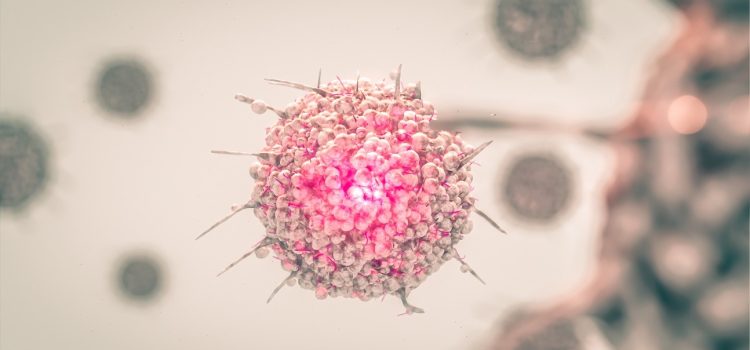
Integrative Oncology is an emerging field that combines conventional cancer therapies with complementary and alternative medicine (CAM) to enhance the quality of life and improve the overall outcomes for cancer patients. This approach seeks to address not only the physical aspects of cancer but also the emotional, social, and spiritual needs of patients. As cancer therapy continues to evolve, integrative oncology is gaining traction as a holistic and patient-centered approach that offers a comprehensive treatment plan. This article explores the trends in integrative oncology, highlighting the synergies between conventional and alternative therapies in cancer treatment.
Understanding Integrative Oncology
Integrative oncology is a patient-centered approach that combines evidence-based conventional treatments, such as surgery, chemotherapy, and radiation, with supportive therapies like acupuncture, nutrition, and mindfulness. The goal is to optimize health, manage symptoms, and improve the quality of life for cancer patients. This approach recognizes that cancer treatment is not one-size-fits-all and that addressing the whole person can lead to better outcomes.
The Role of Conventional Cancer Therapy
Conventional cancer therapies have long been the cornerstone of cancer treatment. Surgery, chemotherapy, and radiation are designed to target and eliminate cancer cells, reduce tumor size, and prevent metastasis. These treatments have been proven effective in many cases, significantly improving survival rates. However, they often come with side effects such as fatigue, nausea, pain, and emotional distress. This is where integrative oncology steps in, offering complementary therapies to mitigate these side effects and support overall well-being.
Complementary and Alternative Medicine (CAM) in Cancer Therapy
Complementary and alternative medicine encompasses a wide range of practices and products that are not typically part of conventional medical care. In integrative oncology, CAM therapies are used alongside standard treatments to provide a more comprehensive approach to cancer care. Some popular CAM therapies in cancer treatment include:
- Acupuncture: This traditional Chinese medicine technique involves inserting thin needles into specific points on the body to relieve pain and manage symptoms like nausea and fatigue associated with chemotherapy.
- Mindfulness and Meditation: Mindfulness practices help reduce stress, anxiety, and depression among cancer patients. Techniques such as meditation and yoga promote relaxation and emotional well-being.
- Nutritional Therapy: A balanced diet tailored to the needs of cancer patients can help strengthen the immune system, improve energy levels, and support recovery. Nutritional counseling is often part of integrative oncology to ensure patients receive optimal nourishment.
- Herbal and Dietary Supplements: Some patients turn to herbal supplements and vitamins to support their treatment. However, it is crucial to consult healthcare providers to ensure these do not interfere with conventional treatments.
- Massage and Bodywork: Therapeutic massage can alleviate pain, reduce stress, and improve circulation. It is often used to enhance the physical comfort of cancer patients.

Evidence and Research in Integrative Oncology
The integration of CAM into cancer therapy is supported by a growing body of research. Studies have shown that integrative oncology can lead to improved patient outcomes, including better pain management, reduced side effects, and enhanced quality of life. For instance, a study published in the Journal of Clinical Oncology found that patients who participated in an integrative oncology program reported significant improvements in emotional well-being and physical functioning.
Research also highlights the importance of personalized care in integrative oncology. By tailoring treatments to individual needs and preferences, healthcare providers can offer more effective and patient-centered care. This personalized approach is becoming increasingly important as patients seek therapies that align with their values and lifestyles.
Challenges and Considerations
Despite the promising trends in integrative oncology, there are challenges and considerations to address. One of the primary concerns is the need for more rigorous research to establish the efficacy and safety of CAM therapies. While many studies support the benefits of integrative approaches, more randomized controlled trials are needed to provide conclusive evidence.
Another challenge is ensuring open communication between patients and healthcare providers. Patients may not always disclose their use of CAM therapies, leading to potential interactions with conventional treatments. It is essential for healthcare providers to create an environment where patients feel comfortable discussing all aspects of their care.
The Future of Integrative Oncology
The future of integrative oncology looks promising as more healthcare systems and cancer centers adopt this holistic approach. Integrative oncology programs are being established in leading cancer centers worldwide, offering patients access to a wide range of therapies under one roof. As awareness grows, patients are increasingly seeking integrative options to complement their cancer treatment.
Technological advancements are also playing a role in the evolution of integrative oncology. Digital health tools, such as mobile apps and telemedicine, are making it easier for patients to access integrative therapies and track their progress. These tools can provide personalized recommendations and support, empowering patients to take an active role in their care.
Conclusion
Integrative oncology represents a shift towards a more holistic, patient-centered approach to cancer therapy. By combining conventional treatments with complementary and alternative therapies, this field aims to improve the quality of life and outcomes for cancer patients. As research continues to support the benefits of integrative approaches, it is expected that more healthcare providers will embrace this model, offering comprehensive care that addresses the physical, emotional, and spiritual needs of patients. By fostering open communication and personalized care, integrative oncology holds the potential to transform the cancer treatment landscape, providing hope and healing to those affected by cancer.










